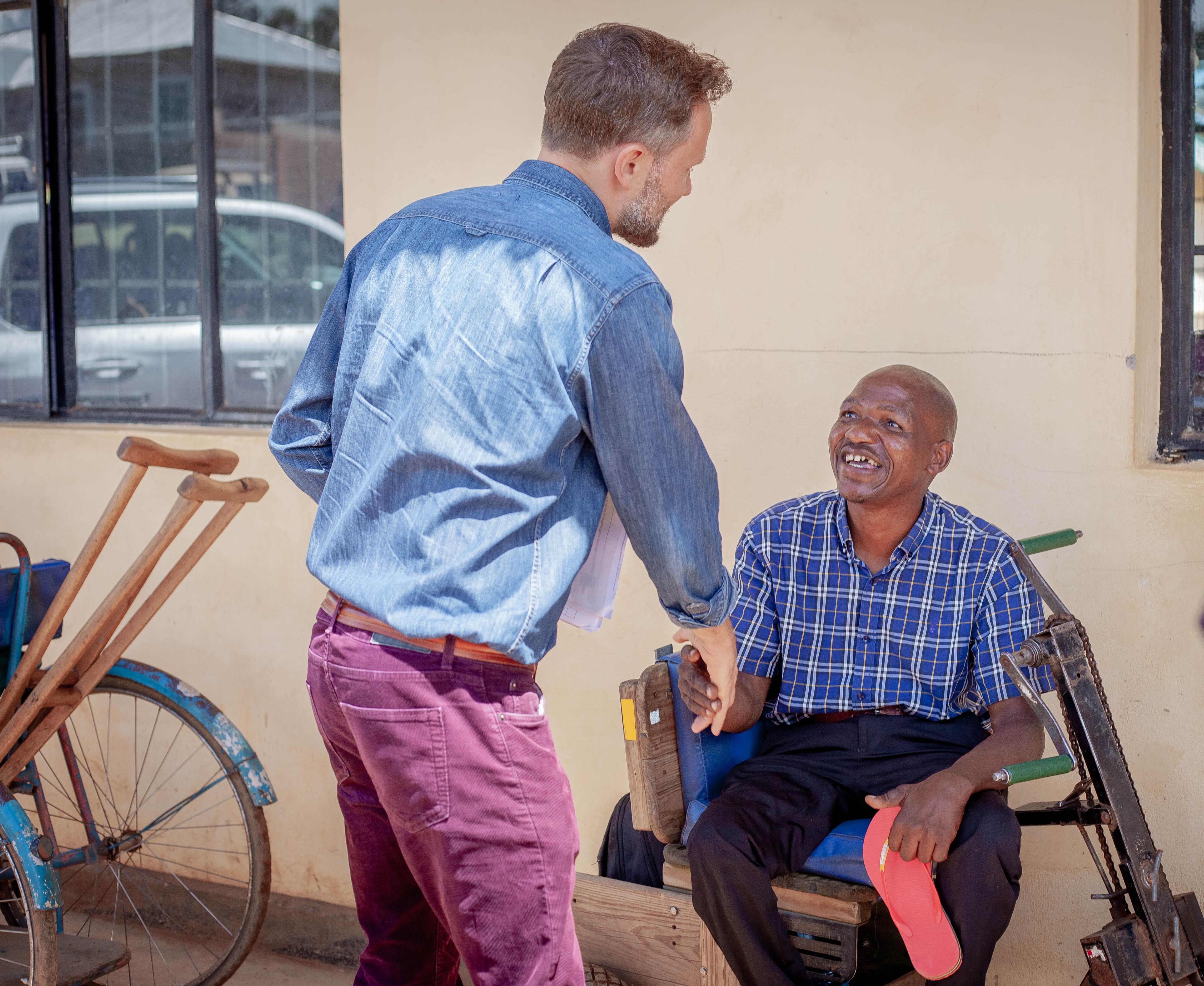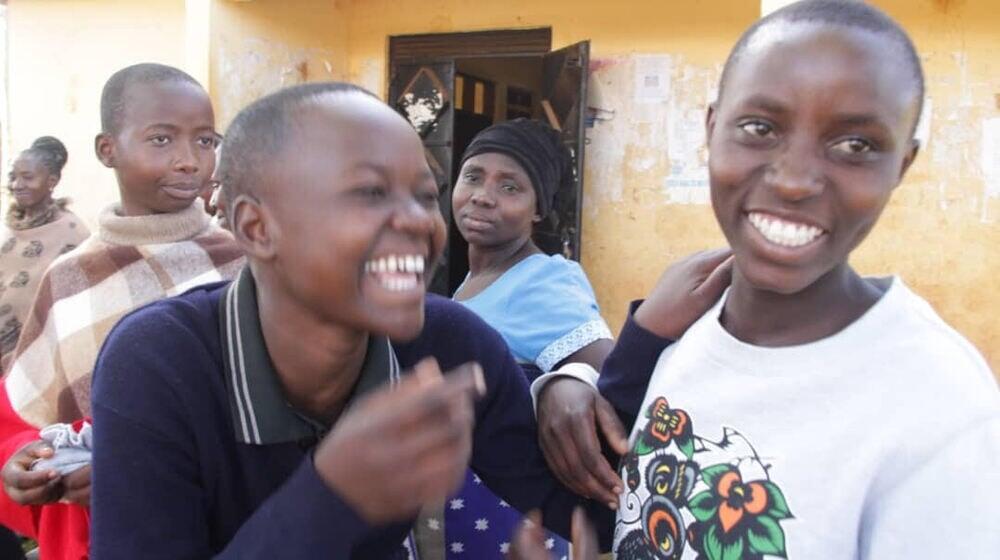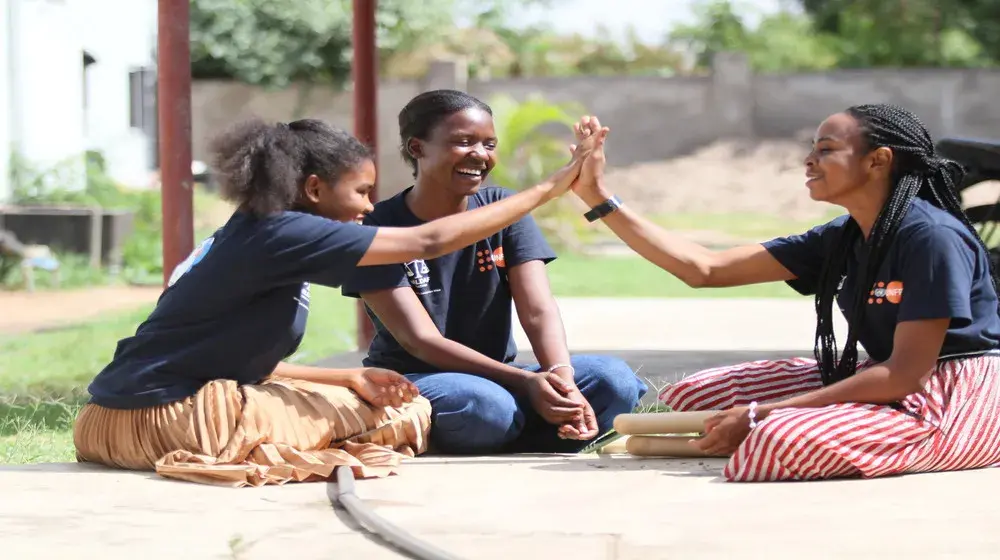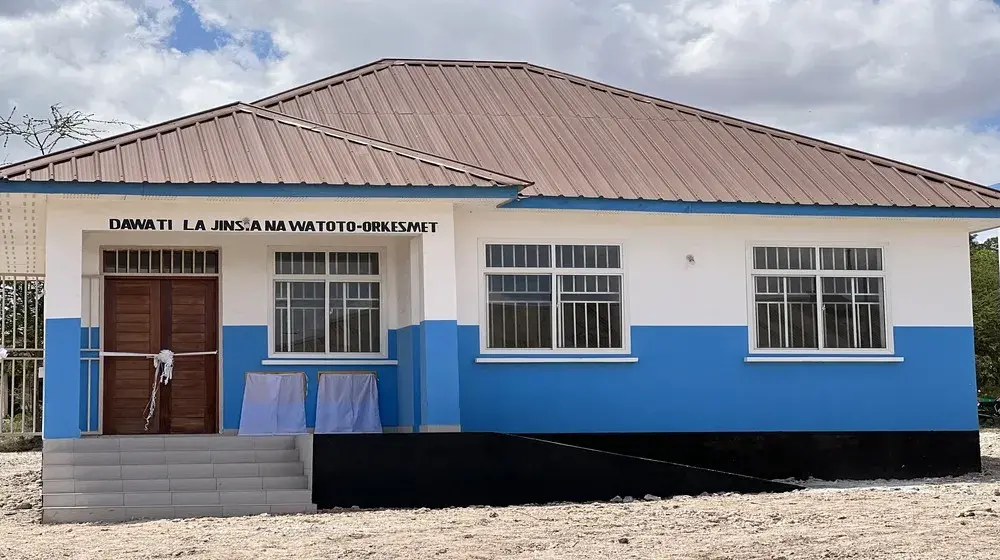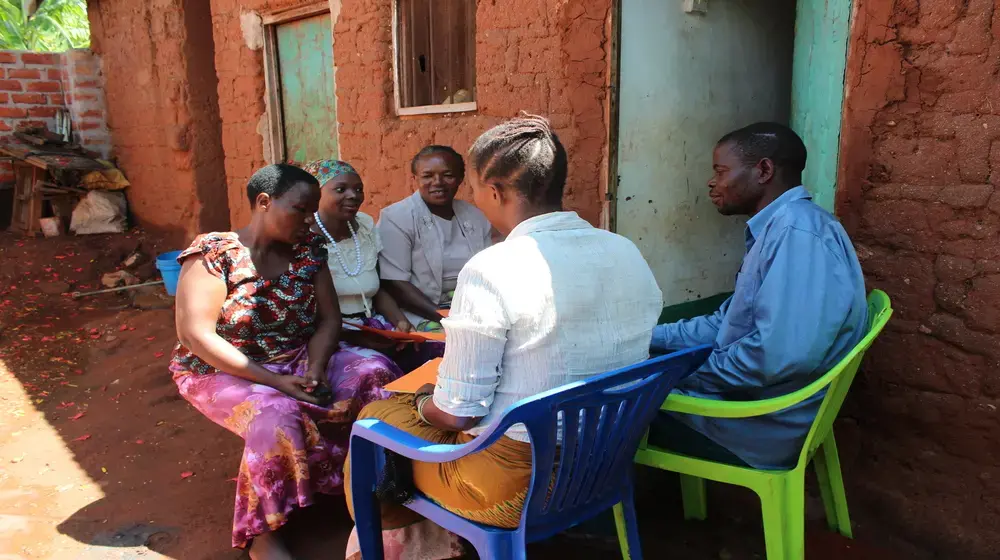Mara, Tanzania: Highlights from the field: Chaguo Langu, Haki Yangu Programme
The ‘Chaguo Langu Haki Yangu - My Rights My Choices: Protecting the Rights and Choices of Women and Girls, particularly Women and Girls with Disabilities in Tanzania’ Programme (hereinafter the Programme) is a three-and-a-half-year programme (2021-2025) implemented by UNFPA, the United Nations sexual and reproductive health agency, and funded by the Government of Finland.
The aim is to ensure that the rights and choices of women and girls, particularly women and girls with disabilities, are protected and enhanced through a multi-sectoral and holistic approach that tackles gender-based violence (GBV) and harmful practices, including early, forced and child marriage and female genital mutilation (FGM). The programme is implemented in Mainland and Zanzibar in four regions and six districts within those regions, including Mara (Butiama and Tarime districts), Shinyanga (Kishapu and Kahama districts), Urban/West Unguja (Urban district) and South Pemba (Chake Chake district). The programme is implemented together with national, regional and district level authorities, civil society and faith-based organizations, and organizations of persons with disabilities.

UNFPA organized a joint field visit,which was attended by UNFPA representatives, representatives from the Embassy of Finland and Ministry for Foreign Affairs of Finland together with implementing partners, National Steering Committee (NSC) co-chairs, key Local Government Authorities (LGAs), and Government Officials.
Reaffirming the local ownership of the programme with the Acting Regional Administrative Secretary, District Commissioner, and District Executive Director
The regional and district representatives thanked the Government of Finland and UNFPA for support and reiterated their commitment to the Chaguo Langu Haki Yangu (CLHY) programme to end GBV, child marriage and FGM.
In his remarks, Mr. Juhana Lehtinen, Head of Cooperation, Embassy of Finland - Tanzania, commended the Government of Tanzania for their commitment to end GBV, child marriage and FGM, including through the CLHY programme, at the national, regional and district levels.
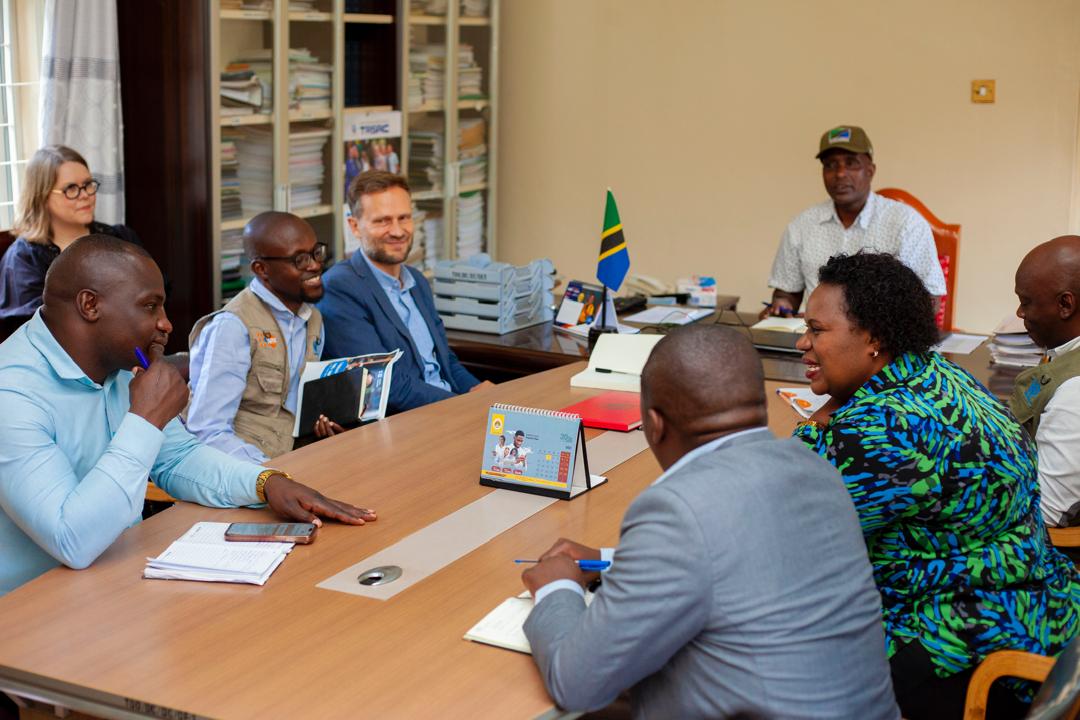
“The rights of women and girls, including those with disabilities, is a key priority area in Finland's development cooperation," he said.
To this end, Mr. Lehtinen expressed his delight with the decrease in GBV cases reported through the administrative systems at the district level and the testimonies from programme beneficiaries that showcase increased awareness of the importance of ending GBV, child marriage and FGM at community level.
Strengthening the functionality of Women and Children Protection Committees
Through the CLHY programme, the members of the Women and Children Protection Committees have gained knowledge on effective approaches for awareness-raising of the rights of women, girls, men and boys, including persons with disabilities, and other strategies for the prevention of GBV, child marriage, and FGM. As a result, the Protection Committee members are better equipped to conduct outreach to parents, faith leaders, and children within their communities with messages about the negative consequences of GBV, child marriage and FGM, They also know about support mechanisms in place for the protection and reporting of cases to the health, police and social welfare officers. Furthermore, the programme has built the capacity of the Protection Committees to collaborate with different stakeholders to ensure effective referral to legal services for survivors of GBV, child marriage and FGM.
Mr. Lehtinen thanked the Protection Committee members for their dedication and commitment to protecting the rights and choices of women and girls, including those with disabilities.
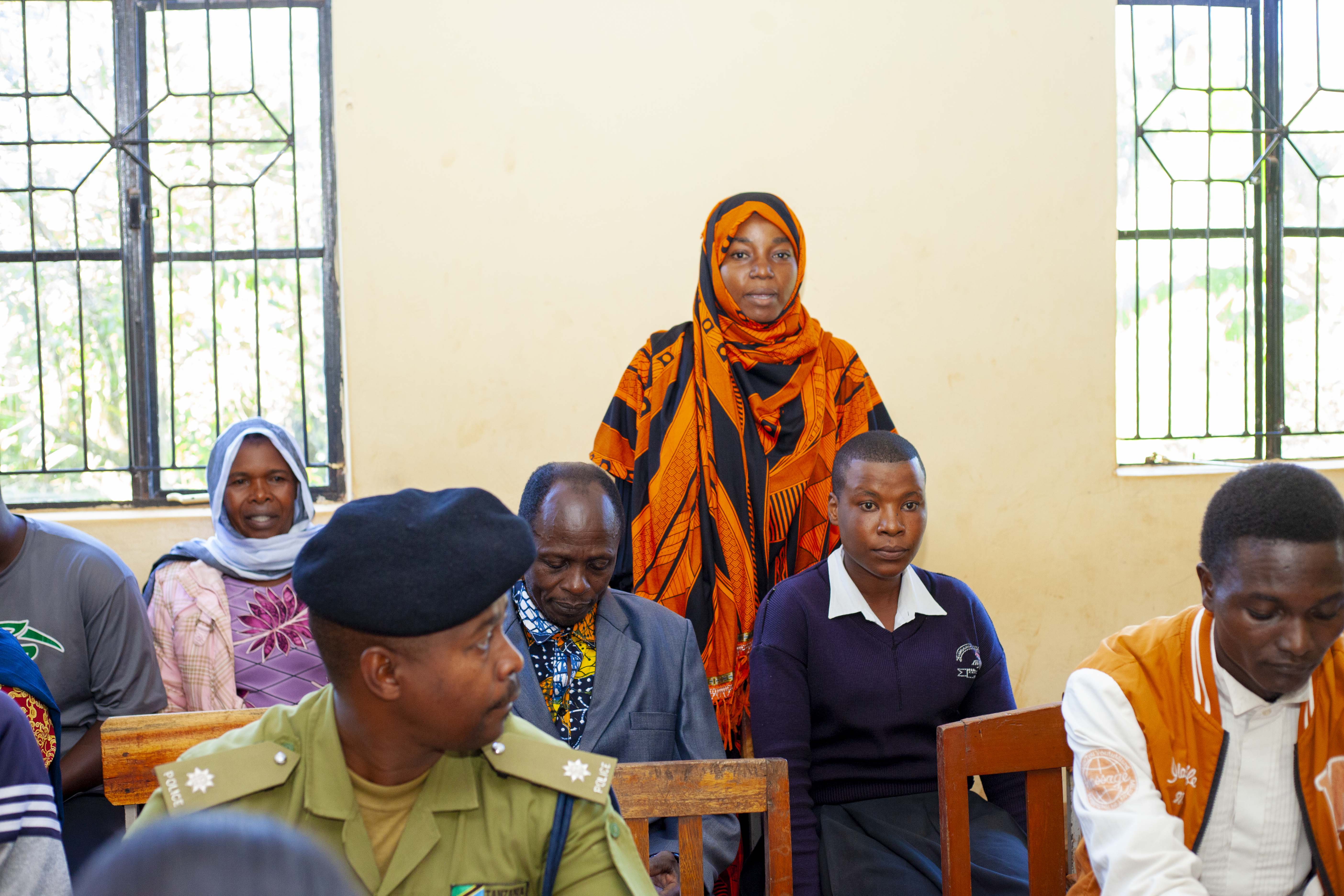
“The Protection Committees are a great example of how community-led actions and emhanced collaboration with LGAs, police, and social welfare offices can advance the common goal of ending GBV, child marriage, and FGM.” He said
Engaging men and boys in gender-transformative change of harmful social norms and practices

"Reaching fellow men and boys from different age groups is the best platform to change norms."
Men and boys play a central role as partners, fathers, leaders in their communities and agents of change. Engaging men and boys to challenge existing gender inequalities, harmful social norms, and practices and empower women and girls is key to ending GBV, child marriage, and FGM.
With support from the CLHY programme, the men and boys who have been trained as trainers and peer educators have become change agents in their communities, and they are promoting positive masculinity, the rights of women and girls, and raising awareness of the harmful consequences of GBV, child marriage and FGM as well as stigma and discrimination against women and girls with disabilities.
"Since I was a young boy, I have witnessed how my father and brothers committed violence against my mother and sisters in my family. Through the programme, I have learned that this is wrong and I do not want to continue that tradition."
Empowering and advancing awareness of rights and gender equality among school children and teachers
The CHLY programme supports girls and boys, including those with disabilities, to learn about gender equality and their rights to live free from GBV, child marriage and FGM. Through songs and plays, they were also empowered with information, and at school, they were provided with safe spaces and channels for reporting violations of their rights through their teachers, the National Child Helpline # 116 or local Police Gender and Children Desks.

The programme also built teachers’ skills to reach out to parents with awareness raising of GBV, child marriage and FGM. The role of teachers to prevent and respond to GBV, child marriage and FGM is now also on their standing agenda at the teachers' meetings and the schools have introduced new protocols for recording and follow up on cases.
Improving access to comprehensive GBV response services
The CLHY programme supports the health, police and justice sectors to strengthen their capacity to provide quality services to GBV, child marriage and FGM survivors. In Tarime, the team visited the One Stop Center, which is currently under construction. Once finalized, the centers will offer survivor-centred and disability-inclusive services to survivors of GBV from police, social welfare officers and healthcare workers under one roof . The team also met a group of healthcare workers in Tarime who were trained by the Ministry of Health on the revised national job aid that has been developed with support from the CLHY programme.
“The training has provided valuable information and skills for us to provide rights-based care to women and girls with disabilities and to address the special needs for healthcare services of persons with disabilities.” The healthcare workers said.
Through the training, the healthcare workers also gained knowledge on the importance of raising awareness of reporting within 72 after sexual violence to be able to gather forensic evidence, which is essential for survivors when taking their cases to court.
Empowering girls and their families to end FGM
In Masanga, the team met a group of mothers of girls who have been re-integrated into their families after escaping FGM to seek safety at the safe house run by the Association to Terminate FGM (ATFGM Masanga).
With the support from the CLHY programme, these brave mothers have become champions of change within their communities. The mothers decided that they would not cut their girls because they heard about the harmful consequences of FGM, including bleeding or even bleeding to death, complications during childbirth, which might affect newborn health, and pre-cause child marriage.They have decided to protect their girls and keep them in school instead of cutting them and marrying underage.
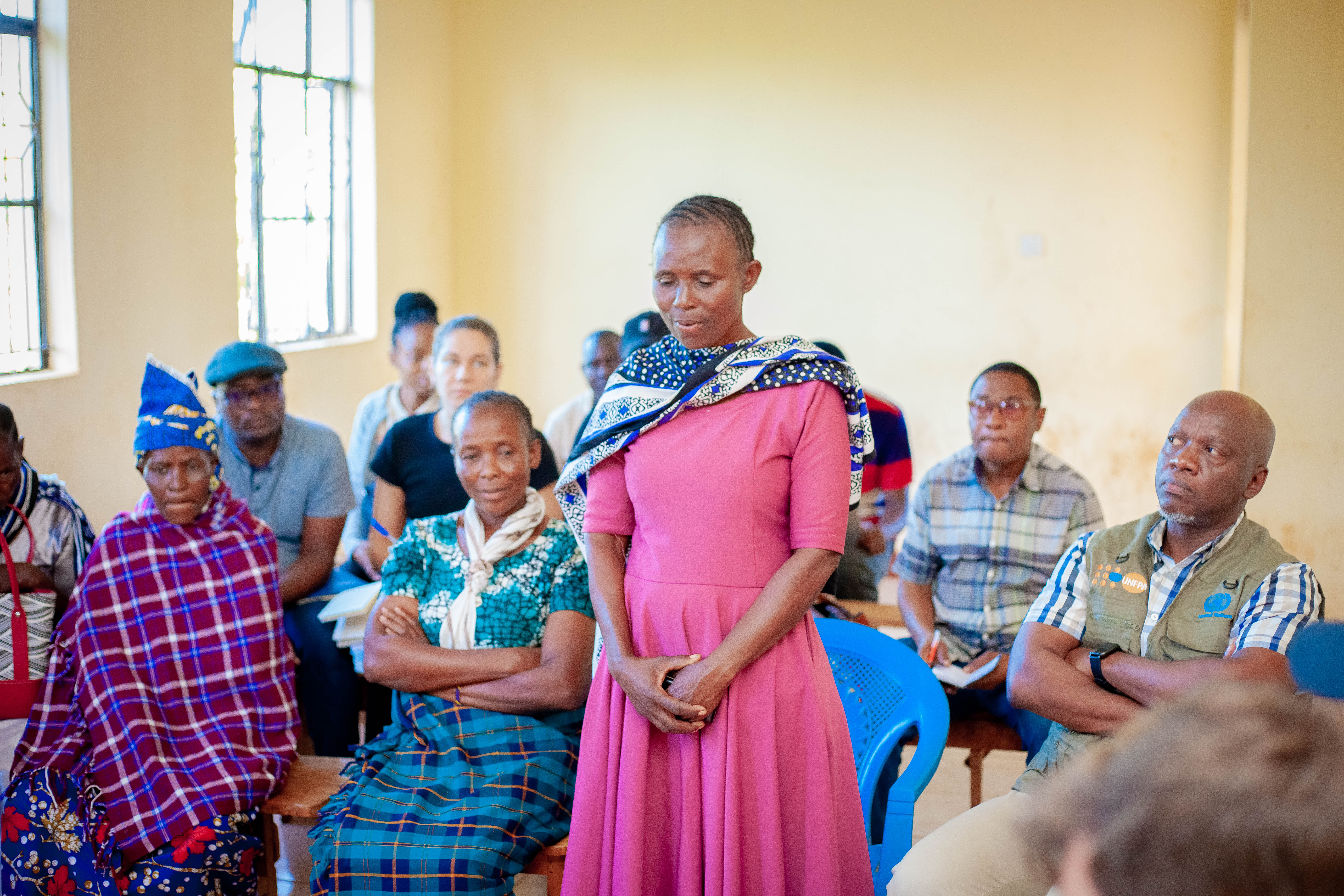
“It is not easy for a woman and a mother like me to go against the traditional norms and practices. Women and girls who are not going through FGM are often isolated from their communities. Despite this, I decided to protect my daughter and provide her education and a better future”. She said.
As champions of change within their communities, the women also conduct outreach in the communities to sensitize their neighbours and raise awareness among other parents that every girl has a right to decide over their own body and future.
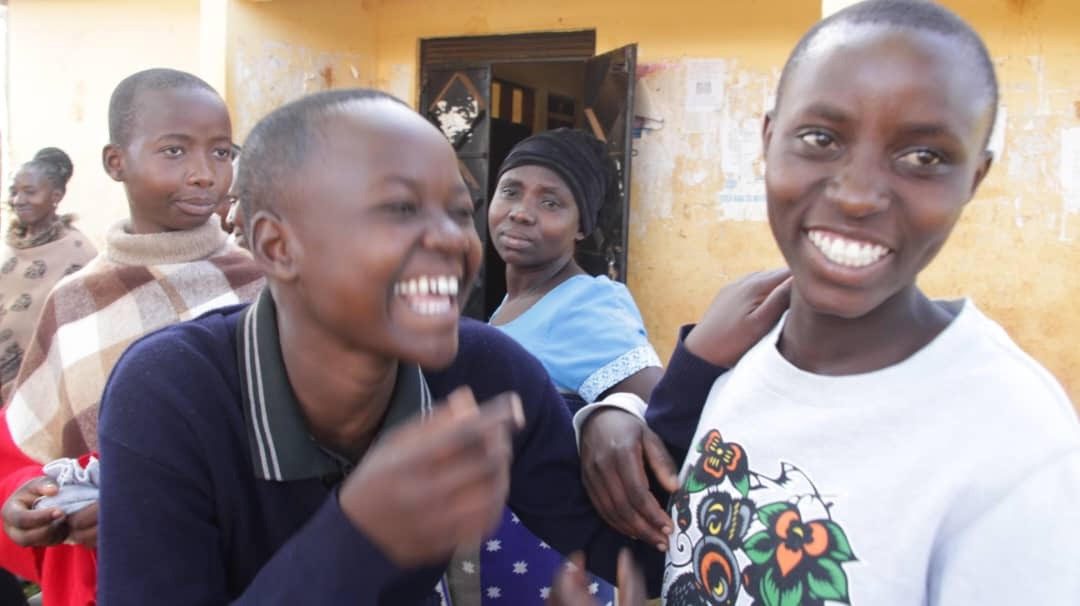
The returning girls, who received life-skills training and safety at the Masanga shelter, also conduct awareness-raising and empower their friends to seek help and protect themselves from FGM. The girls have significantly changed in terms of agency, self-awareness, and self-esteem, which makes them bravely take on the challenges of being shamed and name-called by their peers in schools and communities. In their engagement with the CLHY team, the girls highlighted that they are optimistic and looking forward to a bright future where they will be able to pursue their dreams and become role models for the uncut girls in their communities.

Advancing the rights of persons with disabilities
Through the CLHY programme, awareness has been raised of the rights and requirements of persons with disabilities. In their engagement with the CLHY team, the local representatives from the Tanzania Federation of Organizations of Persons with Disabilities (SHIVYAWATA) highlighted that before the programme started, they were kept outside of the community, but now they have an active role in their communities. They have learned about their rights and are not afraid to raise their voice and demand that their rights and requirements are also taken into consideration. They further noted that their capacity has been increased, and with support from the CLHY programme, they are now holding regular meetings. As a next step, they want to increase the active participation of persons with disabilities in politics and are seeing the upcoming elections as a great opportunity.

“SHIVYAWATA is becoming a gender equality champion! As an organization, we work to ensure that women and girls are equally represented and actively engaged from the leadership level to the grassroots level.”
The OPD representatives also recognized the importance of PD-MIS for persons with disabilities as a valuable source of information to support advocacy, policy and planning at community level, thereby ensuring that their rights and requirements are taken into consideration.
